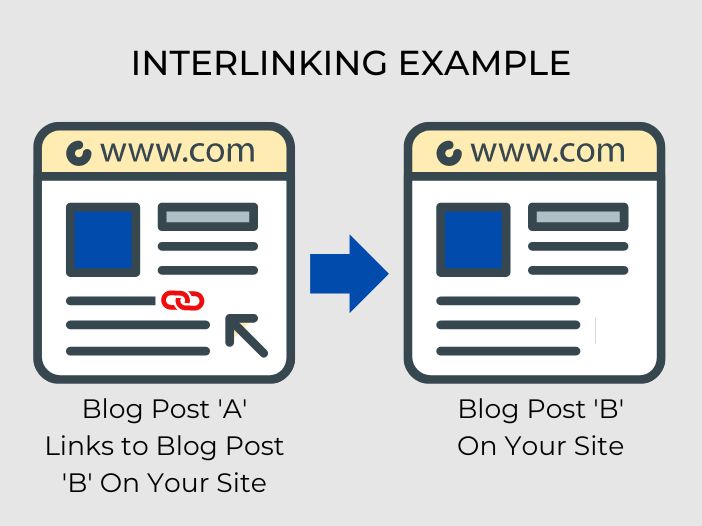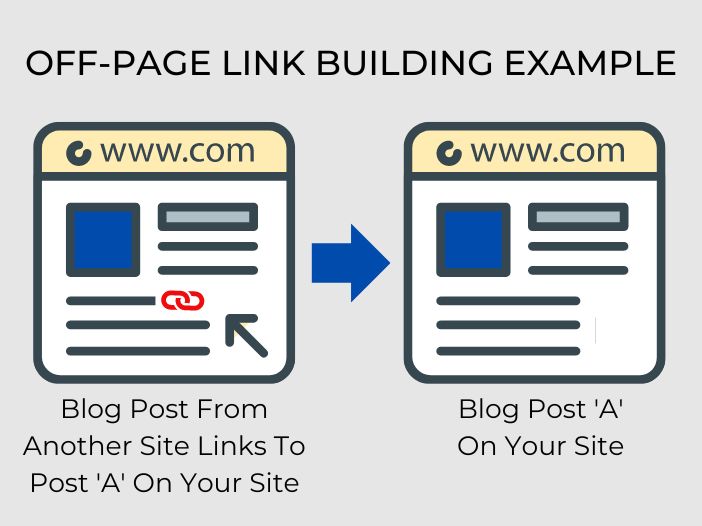In our modern digital landscape, search engine optimization (SEO) stands out as a pivotal marketing instrument for businesses of every shape and size.
The real estate realm is no different. For real estate experts seeking a competitive edge and a way to reel in prospective clients, SEO is crucial.
This guide will illuminate the role SEO plays in the real estate sector and illustrate how you can harness SEO tactics to boost your business performance.
SEO: The Power Behind Successful Real Estate
SEO, an acronym for Search Engine Optimization, is a key component of thriving online marketing strategies. In layman’s terms, it’s all about enhancing your website’s visibility and ranking on search engine giants like Google.
Recent data reveals that a staggering 93% of all online interactions kick-off with a search engine. This suggests that a website lacking SEO optimization is bypassing a vast potential audience.
In the world of real estate, SEO can wield a massive influence on your business. By tailoring your website and content to relevant search terms, you can enhance your visibility and drive more traffic to your site. This leads to more leads, and ultimately, more business transactions.
The Impact of SEO on Your Real Estate Sales
Being a real estate professional, you’re aware of how cutthroat the industry can be. With a plethora of agents and agencies vying for the same clients, distinguishing yourself from the crowd is vital.
SEO can offer you that differentiation. By optimizing your website and content for appropriate search terms, you can bolster your visibility and lure more traffic to your site. This means more leads, and eventually, a thriving business.
A notable advantage of SEO is its longevity. Unlike traditional advertising, which calls for continual investment, SEO can steer traffic to your site for months or even years after you’ve optimized your content.
Local SEO: Your Real Estate Ace
One of the most pivotal areas of SEO for real estate gurus is local SEO. This process entails optimizing your website for local search terms, such as “real estate agent near me” or “homes for sale in X city.”
By focusing on local search terms, you can attract targeted traffic and increase your chances of converting leads into clients.
Local SEO bears significant importance for real estate professionals, as most clients are hunting for properties within a specific area.
By tweaking your website for local search terms, you can ensure that your business pops up at the top of search engine results when potential clients explore properties in your area.
Beyond optimizing your website for local search terms, other steps can further improve your local SEO. For instance, claiming your business listing on Google My Business can make your business appear in Google Maps and local search results.
Also, creating local content, such as blog posts about local events or guides to local neighborhoods, can attract local traffic to your site.
In essence, SEO is an indispensable part of any successful online marketing strategy for real estate professionals. By optimizing your website and content for relevant search terms, you can increase your visibility, drive more traffic to your site, and, in turn, boost your business.
Unlocking the Potential of Keyword Research for Real Estate Websites
Before you can begin optimizing your website and content for search engines, it’s necessary to identify the right keywords to target. Keyword research involves finding pertinent search terms that your target audience is searching for on search engines.
Diving Deeper into Your Ideal Clients Peeling back the layers of your prospective clientele is the inaugural stride in effective keyword research.
Who do you see as your perfect fit clients? What are their primary concerns, obstacles, and objectives? Comprehending your audience permits the crafting of resonant content, honed in on the search terms they’re most likely to use.
In the real estate domain, your target audience could encompass first-time property purchasers, high-end property buyers, commercial property investors, or individuals seeking rental opportunities. Once you’ve pinned down your audience, you can tailor content that directly addresses their needs and interests.
For instance, if you’re aiming your services at first-time property purchasers, you might develop content that demystifies the property buying process, offers guidance for finding the ideal home, and underscores the perks of property ownership.
By targeting the keywords that first-time homebuyers frequently search for, you can drive more traffic to your site and generate higher-quality leads.
Exploring Your Competitors’ Keywords
Next, take a dive into the world of your competitors’ keywords. Which search terms have they secured top rankings for? Which keywords draw traffic and leads to them?
An analysis of your competitors’ keyword strategies can spotlight opportunities to aim for similar search terms and outperform them on Search Engine Results Pages (SERPs).
As an example, if you’re a luxury real estate agent in a specific city, you might scrutinize your competitors’ keywords to identify which neighborhoods they’re targeting and which phrases they’re using to describe luxury properties.
By targeting similar keywords and neighborhoods, you can position yourself as the go-to luxury real estate agent in your locale.
Tapping into Long-Tail Keywords for Real Estate
Long-tail keywords are hyper-specific search phrases composed of three or more words. Even though these phrases may not boast the highest search volume, they are generally less competitive and carry a higher potential to convert. For instance, “luxury homes for sale in X city” is a long-tail keyword that targets a specific demographic with a high intent to purchase.
Other examples of real estate-focused long-tail keywords include “condos for rent in X neighborhood”, “commercial real estate for sale in X city”, and “homes for sale with a pool in X county. By targeting these precise keywords, you can drive highly qualified traffic to your website, leading to higher quality lead generation.
In conclusion, thorough keyword research is a cornerstone for any real estate website aiming to drive more traffic and generate more leads. By identifying your target audience, studying competitor keywords, and targeting long-tail keywords, you can assert your website as a leading resource for real estate information and draw in highly qualified leads for your business.
Optimizing On-Page SEO Elements for Real Estate Websites
On-page SEO speaks to the optimization of your website’s content and structure to enhance its SERP ranking.
As the owner of a real estate website, it’s critical to ensure your site is primed for search engine recognition, thus facilitating the journey of potential clients to find you. Here are some on-page SEO strategies to bolster your real estate website’s performance:
Tailoring Your Website’s Content Your website’s content should be high-quality, informative, and optimized for your chosen keywords. Aim to provide your audience with valuable information about the real estate sector, including tips for buying and selling properties, insights on market trends, and local news updates.
Integrate your target keywords naturally within your content, including within your headings, subheadings, and meta descriptions. However, avoid overstuffing your content with keywords as this can have a detrimental effect on your website’s SERP ranking.
Aside from providing valuable content, ensure your website’s content is readily comprehensible and digestible.
Use short paragraphs, bullet points, and headings to segment your content and make it easy for readers to scan. Infographics and videos can also enhance the user experience, helping to break up the text and provide information in a more engaging format.
Optimizing Page Titles, Headers, and Meta Descriptions
Page titles, headers, and meta descriptions play crucial roles in on-page SEO. Each page’s title and headers should include the primary keyword, reflecting the page’s content.
This not only helps search engines understand what your page is about, but it also informs potential clients, boosting the likelihood they will click on your page in the search results.
Meta descriptions should provide a concise summary of the page’s content and include your main keyword. While meta descriptions don’t directly impact rankings, a well-written meta description can significantly enhance the click-through rate.
Optimizing Your Website’s Architecture The way your website is structured can also affect its search engine performance. Ideally, your website should be organized in a way that makes it easy for both search engines and users to navigate.
In real estate SEO, it’s beneficial to categorize your properties based on different factors such as location, type, and price range.
This structure can make it easier for prospective clients to find what they’re looking for, ultimately improving their user experience and your website’s bounce rate.
Incorporating Internal and External Links
Incorporating internal and external links within your website content can significantly improve your SEO.
Internal links connect different pages within your website, facilitating navigation and helping search engines understand your site’s structure.

On the other hand, external links lead users to other authoritative sites, providing them with additional relevant information and building trust.
However, ensure to link to reputable sources, as linking to low-quality sites can negatively affect your SEO. Similarly, make sure all your internal links work properly to prevent any frustrations for your users.
Incorporating Images and Videos
The use of high-quality images and videos can significantly enhance your website’s user experience, leading to longer site visits and more conversions. Moreover, search engines like Google also prioritize websites that provide a superior user experience.
Ensure to optimize your images and videos for SEO. This can be done by including your keywords in the image or video file names, captions, and alt text. This allows search engines to better understand what the image or video is about, potentially improving your ranking for those keywords.
In conclusion, on-page SEO is a fundamental strategy for real estate websites. By optimizing your website’s content, page titles, headers, meta descriptions, architecture, internal and external links, images, and videos, you can significantly enhance your website’s SERP performance and lead generation.
Off-Page SEO Strategies for Real Estate Websites
Off-page SEO refers to actions taken outside of your own website to impact your rankings within search engine results pages (SERPs).
It involves improving search engine and user perception of a site’s popularity, relevance, trustworthiness, and authority.
This is accomplished by other reputable places on the Internet (pages, sites, people, etc.) linking to or promoting your website. Here are some off-page SEO strategies you can use:
Building High-Quality Backlinks
In the realm of SEO, backlinks are a vital signal to search engines about your website’s credibility and relevance.

Websites with more backlinks from high-authority domains typically have better search rankings. You can get backlinks by:
- Creating high-quality, unique content that others naturally want to reference and link to.
- Guest blogging on reputable websites in your industry.
- Establishing partnerships with local businesses and organizations.
- Running local events or webinars that attract attention and links.
Managing Your Online Reputation
Online reviews and ratings on platforms like Google My Business and Yelp play a crucial role in local SEO. Encourage satisfied customers to leave a review and respond professionally to any negative feedback. The quantity and quality of your online reviews can influence your search engine ranking and click-through rates.
Leveraging Social Media
While social media signals are not a direct ranking factor, there’s a correlation between social media activity and higher rankings.
Regularly sharing content on platforms like Facebook, LinkedIn, Instagram, and Twitter can help you reach a larger audience, increase engagement, and drive more traffic to your website. Furthermore, it enhances brand awareness and reputation, which indirectly boosts your SEO efforts.
Local Citations and Directories
Local citations refer to the mention of your business’ name, address, and phone number (NAP) on other web pages, even if there is no link to your website.
Common sources of local citations include local business directories, websites, and social platforms. Ensure your NAP is consistent across all platforms, as inconsistency can confuse both search engines and potential clients.
Implementing an SEO Audit for Your Real Estate Website
SEO audits can be a powerful tool to understand how your real estate website is performing, identify potential issues and opportunities, and plan your SEO strategy effectively.
An SEO audit involves a comprehensive examination of your website from an SEO perspective, taking into consideration on-page and off-page elements, website design and structure, and more.
Here are the key steps to perform an SEO audit for your real estate website:
- Check Your Website’s Accessibility: The first step in any SEO audit is to check whether your website can be accessed by search engines. You can use tools like Google’s Search Console to ensure that search engines can crawl and index your website without any issues.
- Analyze Your Website’s Structure: Your website’s structure can significantly impact its SEO performance. The website should be organized logically, with a clear hierarchy and easily navigable pages. A sitemap can help both users and search engines understand your site’s structure.
- Examine On-Page SEO Elements: Evaluate your title tags, meta descriptions, URLs, heading tags, and image alt texts. Are they optimized with your target keywords? Is every page of your website unique and does it provide value to the user?
- Review Your Website’s Content: The content on your website should be informative, engaging, and keyword-optimized. Look for duplicate content, thin content (content with very little valuable information), and outdated content. Make sure your content is regularly updated and aligned with the search intent of your target audience.
- Check Your Website’s Mobile-Friendliness: With a significant portion of searches being conducted on mobile devices, having a mobile-friendly website is critical for SEO. Use Google’s Mobile-Friendly Test tool to see if your site is optimized for mobile viewing.
- Analyze Your Website’s Speed: Page speed is a crucial factor in SEO as slow loading pages can lead to a poor user experience and lower rankings. You can use tools like Google’s PageSpeed Insights to test your site’s speed and get recommendations for improvement.
- Evaluate Your Backlink Profile: Backlinks are a key part of off-page SEO. Analyze your backlink profile to see where your links are coming from, and make sure they’re from reputable, relevant sources. Use a tool like Ahrefs or Moz to conduct a backlink analysis.
- Identify Technical SEO Issues: Look for technical issues like broken links, 404 errors, duplicate content, and improper redirects. These can harm your SEO performance and should be fixed as soon as possible.
After conducting your SEO audit, you’ll have a better understanding of how well your real estate website is optimized for search engines and where there’s room for improvement.
Create an action plan based on your findings and start working on enhancing your website’s SEO.
Maintaining SEO Performance Over Time
SEO is not a one-time project; it’s an ongoing process that requires regular monitoring and updates. Google and other search engines continuously update their algorithms, which means that what works today might not work tomorrow.
- Regularly Monitor Your SEO Metrics: Keep track of key SEO metrics like organic traffic, bounce rate, conversion rate, page load speed, and keyword rankings. This can help you understand how well your SEO strategies are working and where there are opportunities for improvement.
- Update Your Content Regularly: Search engines favor fresh content. Regularly updating your blog posts, property listings, and other website content can help improve your rankings.
- Keep Up with SEO Trends and Updates: SEO best practices are always evolving. Stay updated with the latest trends, algorithm updates, and best practices by following reputable SEO blogs and forums.
- Regularly Conduct SEO Audits: Regular SEO audits can help you identify and fix issues before they start to impact your website’s performance. Aim to conduct an SEO audit at least once or twice a year, or anytime you make significant changes to your website.
- Engage in Continuous Link Building: Backlinks are a crucial part of SEO. Keep striving to earn high-quality backlinks from authoritative and relevant websites. Remember that it’s quality over quantity when it comes to backlinks.
- Keep Your Website User-Friendly: Remember, the ultimate goal of SEO is to provide a better user experience. Keep your website clean, easy to navigate, and make sure your content is valuable and relevant to your users. Improving the user experience can lead to better engagement, which can positively affect your SEO.
- Competitor Analysis: Keep an eye on what your competitors are doing. Analyze their websites, look at their backlinks, and try to understand their SEO strategies. You can use tools like SEMrush for competitor analysis. This can provide you with valuable insights and potentially open up new SEO opportunities for your site.
- Encourage Customer Reviews: Reviews can play a significant role in local SEO. Encourage satisfied customers to leave reviews on Google or other relevant platforms. This not only builds trust with potential clients but also sends positive signals to search engines.
- Technical SEO: Continue optimizing your website’s technical aspects, including structured data, XML sitemaps, SSL encryption, and AMP (Accelerated Mobile Pages). Make sure your website is free from crawl errors, broken links, and duplicate content.
- Stay Patient and Consistent: SEO is a long-term game. It might take months to see the results of your efforts. Don’t be discouraged if you don’t see immediate results. Stay consistent with your efforts, keep learning, and adapting.
By following these steps and regularly auditing your real estate website’s SEO, you’ll put yourself in a stronger position to attract more organic traffic, generate more leads, and ultimately drive more sales for your business.
It’s a continuous effort, but one that can yield significant results over time.
Conclusion
SEO is a critical marketing strategy for real estate professionals seeking to boost their online visibility, attract more traffic, and generate leads.
On-page and off-page SEO, along with local SEO, should be components of your digital marketing plan. Keep in mind that SEO is an ongoing process. It requires time, patience, and consistent effort.
By implementing the strategies outlined in this guide, you can improve your website’s ranking, stand out in the competitive real estate market, and grow your business.





